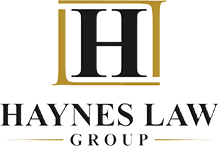I have had some recent phone calls from people who had been foreclosed on by someone other than their mortgage lender. This resulted in Florida Foreclosure Surplus Funds, but the client didn’t understand how a company/entity could foreclose on their home if they weren’t the mortgage lender. Secondly, they wanted to know what happens now to the the surplus funds and if any of it would go to pay down the mortgage or if the mortgage holder is entitled to any of the surplus. Let me take this a step at a time.
First of all, according to Florida Statute 55.10, anyone who files a lien according to this statute can attach that lien on your house. This could be from a second mortgage, a construction or mechanics lien, tax lien, Attorney’s fee lien, creditor’s lien from a judgment, past due child support, and a lien from your homeowner’s association, etc. Just keep in mind that homeowner’s associations are protected by their own Florida Statutes and many of their liens are automatic based on the language of the association. Once the lien has been properly recorded with the Clerk of Court for your County, this entity that recorded the lien can potentially foreclose on your property so they can be paid back what they are owed.
That means that anyone who can properly record a lien, can attach it to your property. Anyone who has a lien attached to your property can potentially foreclose on your home in order to be paid back. By Florida Statute these lienholders can also assign the lien to someone else and that new lienholder can foreclose. This happens a lot with mortgages and second mortgages. The foreclosure process can be a very long and drawn-out process if handled correctly, but if you don’t respond to the complaint and ignore things then it can be very quick, and your property can be sold at auction before you know it. Sounds strange, but I see it all the time.
Next, if a lienholder that is not your mortgage company forecloses and sells your home at a foreclosure auction, who is due any remaining surplus? The typical lawyer answer is “it depends”. To understand who is due those surplus funds, we first look at Florida Statute 45.032(2) which states, “the owner of record on the date of the filing of a lis pendens is the person entitled to surplus funds after payment of subordinate lienholders who have timely filed a claim.” The owner of record is you, the person on the deed to the property at the time the foreclosure case was filed. Subordinate lienholders are any lienholders that are lower in priority from the lienholder who filed the foreclosure case. Sometimes this priority must be determined by an evidentiary hearing and sometimes it is evident by the type of lien they have. A mortgage lienholder (purchase money) is going to (generally) be top in priority. Sometimes a homeowner’s association is also a super lienholder to other lienholders.
Any entity who has a superior lien to that of the foreclosing lien cannot touch the Florida Foreclosure Surplus Funds. The Florida Fourth District Court of Appeals stated in a case called Amado Garcia v. Woodgate Condo Association, “a senior lienholder’s security interest remains with the property even after the foreclosure sale.” Additionally, the person or entity that purchased the property at the foreclosure sale “takes title [of the property] subject to the prior liens.” Those superior liens will stay with the property because their rights are not extinguished by the foreclosure sale and they will have the ability to foreclose on the property themselves if they wish. The court then stated, “Because senior lienors’ rights are unaffected by foreclosure, holders of liens which are senior in priority have no right to share in a surplus produced by the foreclosure of a junior mortgage.”
Based on the language of the case law and by statute, any senior lienholders cannot take the surplus funds from a foreclosure of a junior lienholder. I should also point out here that the new owner of the property is also not allowed any of the Florida Foreclosure Surplus Funds as they are neither the owner of the property at the time of the lis pendens, nor are they a lienholder. They are just the new owner and take the title to the property subject to any superior liens that are still attached. The Florida Third District Court of Appeals stated in Pineda v. Wells Fargo Bank, “neither the statutes nor the case law governing distribution of surplus foreclosure sale proceeds provides a mechanism authorizing a third-party purchaser to obtain the surplus.”
All of this can seem a bit complicated, but if you hire a qualified Florida Foreclosure Surplus Funds Attorney and not sign over your rights to the surplus to one of those sketchy surplus recovery companies, you will be much better off. I know the law and can help you fight off other entities that try to get at the Florida Foreclosure Surplus Funds that should go to you. Please give me a call for a free consultation. I will look over your case and give you an honest assessment of how your case is to be handled. If there are other lienholders that are trying to get money they are not due, I can make sure they don’t get it. I handle Foreclosure Surplus Funds and Tax Deed Surplus Funds cases in every County in the State of Florida, and I don’t get paid unless you do.


